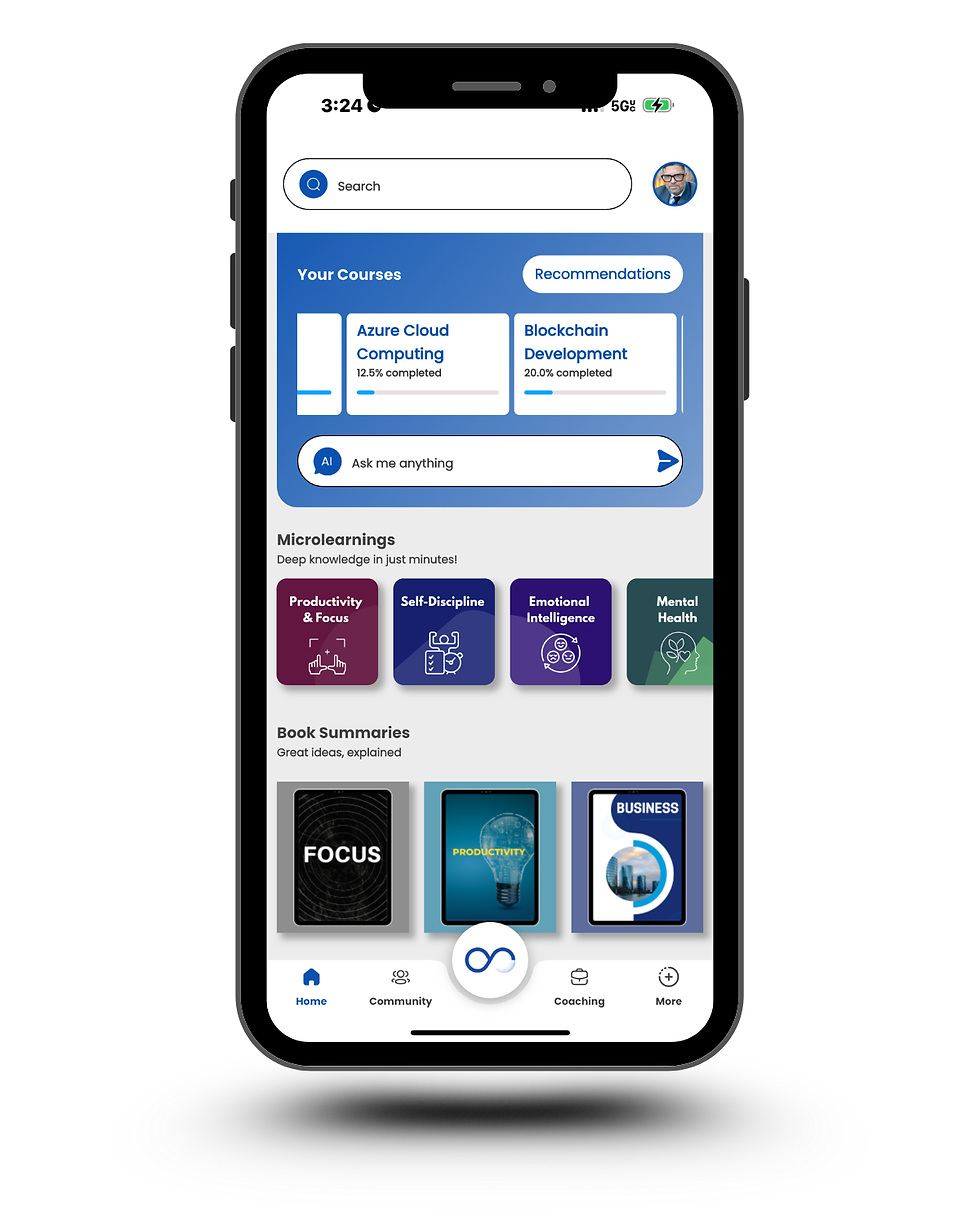AI-Powered Learning: Innovative Approaches in Training and Development
- Reggie Padin
- Jan 11, 2024
- 2 min read

In the rapidly evolving landscape of education and professional training, AI-power learning stands out as a revolutionary force. The integration of AI into learning and development (L&D) is not just a fleeting trend; it's a paradigm shift that is reshaping how we learn, teach, and grow professionally. This article delves into the innovative approaches that AI brings to training and development, offering insights into its transformative impact.
The New Era of Personalized Learning
One of the most significant contributions of AI in L&D is the personalization of learning experiences. Traditional one-size-fits-all approaches often fail to meet individual learner needs. AI changes this by analyzing learner data to tailor content, pace, and learning paths. For instance, AI algorithms can identify a learner's strengths and weaknesses, adapting the curriculum in real-time to ensure more efficient and effective learning.
Engagement through Interactive Tools
AI-powered tools are redefining engagement in learning environments. Interactive platforms, gamified elements, and immersive experiences using Virtual Reality (VR) and Augmented Reality (AR) keep learners motivated and involved. For example, AI-driven simulations provide realistic scenarios for learners to practice skills in a safe, controlled environment, significantly enhancing the learning experience.
Data-Driven Insights and Predictive Analytics
AI's ability to analyze vast amounts of data is a game-changer in L&D. By leveraging big data, educators and trainers can gain valuable insights into learning patterns and outcomes. Predictive analytics can forecast individual learner’s performance, enabling early intervention and support where needed. This data-driven approach ensures a more targeted and efficient learning process.
AI in Corporate Training
In the corporate world, AI is instrumental in upskilling and reskilling employees. AI-driven platforms can quickly assess skill gaps and deliver customized training programs. For instance, chatbots and AI tutors provide on-demand assistance, making learning more accessible and flexible. This adaptability is crucial in today’s fast-paced business environment where continuous learning is key to staying competitive.
Navigating Ethical and Practical Challenges
While AI offers immense potential, it also brings challenges. Ensuring fairness and avoiding bias in AI algorithms is crucial. Data privacy and security are paramount in AI-based learning systems. Additionally, there's a need for a balanced approach that values human interaction and soft skills, alongside technological proficiency.
Looking Ahead: The Future of AI in L&D
The future of AI in L&D is promising and full of potential. As AI technology continues to advance, we can anticipate even more sophisticated and seamless learning experiences. The integration of AI with other emerging technologies like blockchain and the Internet of Things (IoT) is likely to further revolutionize the field. However, it's essential to approach this future with a mindset that values ethical considerations, human-centric design, and continuous adaptation.
The integration of AI into learning and development is transforming the educational landscape, offering personalized, engaging, and data-driven learning experiences. As we embrace these changes, the focus should remain on leveraging AI to enhance human potential, ensuring ethical practices, and preparing for a future where AI and human intelligence work in harmony to foster continuous learning and development.





Comments